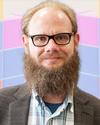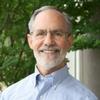Research Terms
Experimental Psychology Humanities Psycholinguistics
Keywords
Embodied Cognition Language Comprehension Language Production Social Dimensions Of Language Use
| Ends | Title |
| 06-2017 |
Human Factors Guidelines To Develop Educational Tip Cards For Aging Road Users
Human Factors Guidelines To Develop Educational Tip Cards For Aging Road Users
Florida Department of Transportation
|
| 07-2013 |
Social Power and Action
Social Power and Action
National Science Foundation
|
| 08-2009 |
Sensorimotor Processes in Language Comprehension
Sensorimotor Processes in Language Comprehension
National Science Foundation
|
| 04-2008 |
Bess Ward Fellowship & Honors Thesis Award 2006-2008
Bess Ward Fellowship & Honors Thesis Award 2006-2008
University Honors Program
|
Mike Kaschak is a cognitive scientist who specializes in language. He received his Ph.D. from the University of Wisconsin, and since then has been directing the Learning, Memory and Language Lab at Florida State University. How do we derive meaning from language? How do we decide what we want to say? What cognitive and social processes are involved as we interact with each other? These are the main questions that are addressed in Dr. Kaschak's work.
Psychonomic Society, Member; 2005 - present
Associate Editor -- Acta Psychologica, Elsevier Publishing; 2010 - 2023
Mike Kaschak is a cognitive scientist who specializes in language. He received his Ph.D. from the University of Wisconsin, and since then has been directing the Learning, Memory and Language Lab at Florida State University. How do we derive meaning from language? How do we decide what we want to say? What cognitive and social processes are involved as we interact with each other? These are the main questions that are addressed in Dr. Kaschak's work.
Speaker Topics
Target Audiences
Adults High School Middle School
Fee Range
Institute for Cognitive Sciences
| Director |
Michael Kaschak |
| Phone | (850) 644-9363 |
| Website | http://artsandsciences.fsu.edu/ |
| Mission | The Institute of Cognitive Sciences was founded in 1984 for the encouragement of interdisciplinary research, cross-disciplinary communication, and graduate study in the multidisciplinary field of cognitive sciences. Its members have included faculty and graduate students from the following disciplines: computer science, psychology, philosophy, linguistics, education, business and physics. A certificate is offered for graduate study in cognitive sciences. |



























